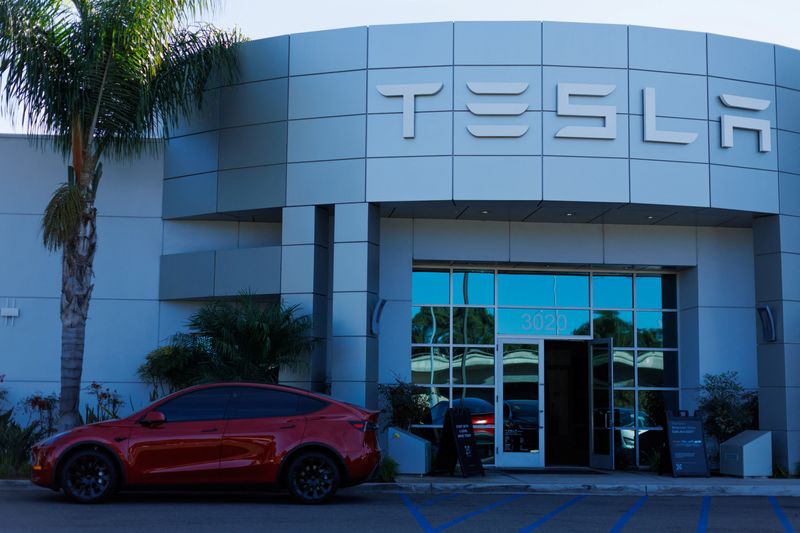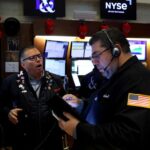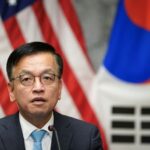(Reuters) -Billionaire Elon Musk stands to benefit greatly from his ties with U.S. President-elect Donald Trump after the Tesla (NASDAQ:TSLA) CEO became one of Trump’s most important supporters during the 2024 campaign.
Tesla shares closed nearly 15% higher on Wednesday after Trump defeated Vice President Kamala Harris, with the company’s market value jumping by around $120 billion. Musk donated millions of dollars to Trump’s campaign. Trump has said he would establish a government efficiency commission headed by Musk to cut federal spending.
His influence is expected to be significant at a time when Musk already holds considerable power owing to his role as a major contractor with the U.S. Department of Defense through his ownership of the Starlink satellite broadband system and as CEO of Tesla.
Musk was a beneficiary of some policies Trump disliked, including the solar and electric-vehicle credits included in the Inflation Reduction Act passed by President Joe Biden in 2022. Trump’s desire to reduce EV mandates may hurt Musk’s competitors more than it hurts Tesla due to its volume of sales.
A group representing the EV industry said on Wednesday it was ready to work with Trump, who has vowed to reverse many pro-EV policies of his predecessor.
‘HEDGED HIS BETS’
“Musk basically hedged his bets by his association with Trump and likely will get favorable treatment from the Trump administration,” said Dennis Dick, trader at Triple D Trading.
Regulatory approval for Full Self Driving is going to be a big hurdle for Tesla, but Musk is likely to get regulatory approvals more quickly with Trump on his side, Dick said.
Shares of EV companies Lucid Group (NASDAQ:LCID) and Rivian Automotive (NASDAQ:RIVN) fell 5.3% and 8.3%, respectively. In addition, Trump’s promises to levy heavy tariffs on Chinese imports, particularly on EVs, would shield Tesla from that competition, analysts said.
Shares of China’s BYD (SZ:002594) dropped 2.3% overnight.
It is not clear how Musk will address his conflicts of interest in the auto, space, health, construction and artificial intelligence industries, or whether he will leverage the interests during a Trump administration that takes a hands-off approach to regulation.
A role overseeing deregulation and cutting spending would give Musk “influence over U.S. policy on AI, space exploration and EVs — all which Musk has a direct interest in via Tesla and other ventures,” said Mamta Valechha, consumer discretionary analyst at Quilter Cheviot.
Musk may try to wield his influence to reduce regulatory oversight of his businesses. He has been a vocal critic of federal review of his SpaceX rocket business and wants to speed up approval of his autonomous driving technology.
He is also a big proponent of carbon-free energy, as Tesla is a major supplier of solar systems and batteries. Trump has promised to kill the offshore wind industry and rescind all unspent funds under the Inflation Reduction Act — Biden’s signature climate law.
However, Republican-dominated states have seen big gains from the law; Musk is building his second U.S. EV factory in Texas.




